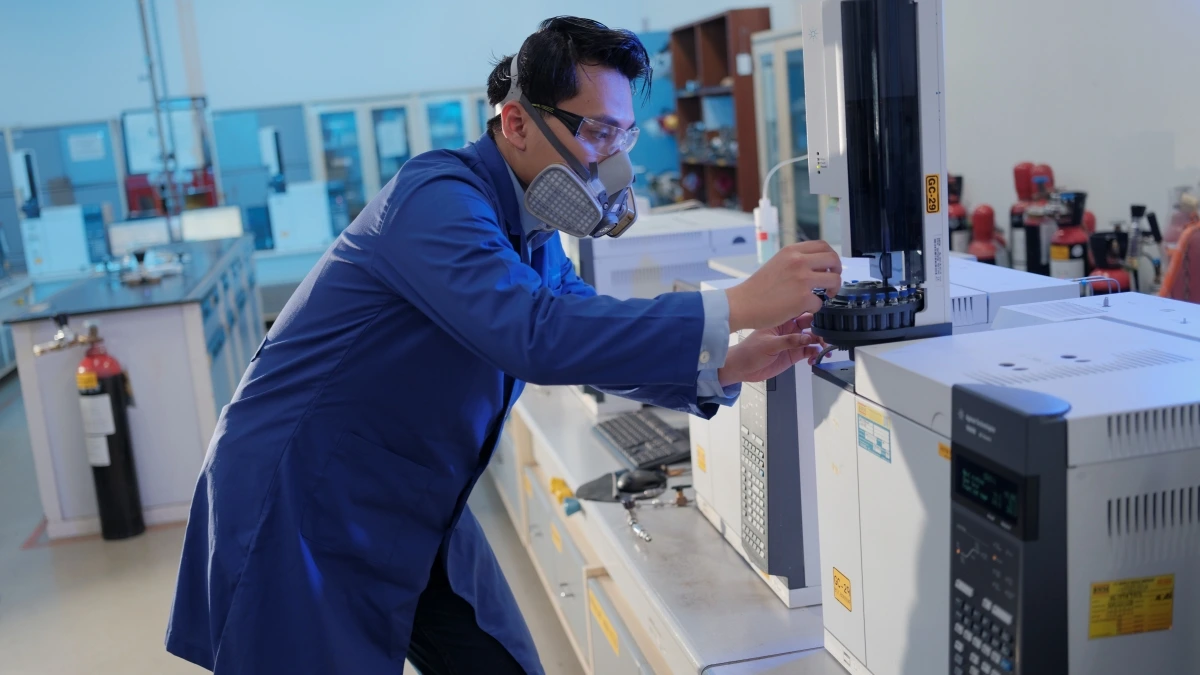
16-06-2025
What Is Alkylation? Definition, Functions, and Examples
Did you know? To make a petrochemical product, there are several processes you must do, one of which is alkylation. Alkylation is a chemical reaction that adds alkyl groups to organic compounds.
Not only in the petrochemical industry, but alkylation is also often used in the agrochemical and medical industries. To find out more about alkylation, read the information below.
What Is Alkylation?
Alkylation is a process of adding alkyl groups to organic substrate molecules through addition or substitution reactions. Alkyl groups are alkane molecules that do not have hydrogen atoms. One example of an alkyl group is a methyl group produced from removing hydrogen atoms from methane.
An alkyl group will be added to or replace a molecule, such as a radical, carbocation, carbene, or carbanion. These groups can bond with various atoms in the substrate molecule, such as oxygen, nitrogen, and carbon atoms.
Additionally, alkylation is defined as a chemical reaction between light unsaturated hydrocarbons (like propylene) with saturated hydrocarbons (like isobutane) to create alkylated compounds.
This chemical reaction usually needs strong acid catalysts, such as hydrofluoric acids or sulfuric acids, to happen. Since the alkylation reaction is highly exothermic, you need to cool the reactor while the alkylation process takes place.
Read also: Aromatic Hydrocarbons: Characteristics and the Reactions
The Functions of Alkylation

Alkylation has become an important chemical reaction in various industries. Here are some functions of alkylations:
1. Pharmaceutical Industry
Alkylation is a process frequently used to produce medicines, including cancer medications. A group of chemotherapy agents called alkylating antineoplastic agents will fuse methyl groups with cancer cell DNA.
This process will damage the DNA, block the growth of cancer cells, and prevent the cancer cells from replicating. Because of this role, alkylation-based cancer treatment is very important.
2. Fuel Industry
Alkylation is crucial in the distillation industry, especially in high-octane fuel production, because it can increase machine performance, reduce hazardous emissions, and improve efficiency.
3. Organic Chemical Industry
Alkylation reaction is commonly used in the organic chemical industry. One of the most popular alkylation reactions is the Friedel-Crafts reaction. This reaction was discovered by an American scientist named James Crafts and a French scientist named Charles Friedel.
This reaction involves an alkyl halide and a Lewis acid catalyst to trigger aromatic alternations that modify the molecular structure and create new compounds with unique characteristics.
Aside from the industries mentioned above, alkylation is also needed in plastic, synthetic rubber, herbicides, pesticides, food additives, solvents, surfactants, and other products.
Read also: What Is Plastic Made of? Here Are the Materials & Process
Examples of Alkylation
The alkylation reaction could happen thanks to the addition or substitution and occurred electrophilically or nucleophilically. Here are the examples of alkylation reactions:
- Grignard reaction (alkylation of ketones or alkanes to form C-C bonds).
- Friedel-Crafts reaction (alkylation of an aromatic ring via an alkyl halide).
- Wurtz reaction (coupling reaction of an alkyl halide and an organometallic to form a C-C bond).
- Suzuki reaction (alkylation of alkyl halides).
- Gabriel synthesis (alkylation of phthalimides with alkyl halides to form primary amines).
- Aminoalkylation of ketones to form beta-amino ketones.
- Acids form esters by reaction with diazo compounds.
- Alkylation of phosphines to phosphonium salts.
- Alcohols form ethers with diazo compounds or alkyl halides.
- Alkylation of thiols to thioethers
- Formation of ethers from the reaction of alkoxides with alkyl halides.
- Alkylation of primary amines to form quaternary ammonium cations.
- Alkylation of cyclical nitrogen with alkyl halides.
- Substitution for hydrogen bonded to carbon on ethylbenzene from benzene and ethylene.
- Substitution for hydrogen bonded to nitrogen.
- Substitution of hydrogen at the hydroxyl group on phenols or alcohols.
- Addition of tertiary amines to make quaternary ammonium compounds.
Alkylation Reaction in Petroleum and Bulk Chemical Industries

Alkylation’s role in the petroleum industry is very significant, especially in fuel production. The alkylation process in the petroleum industry involves converting compounds, such as isobutane, propylene, and butylene, into alkylates. Alkylates are high-octane fuel components.
Petroleum gases, like propylene, are recycled from the refining process to be the feedstocks for alkylation units. Alkylate, which is the final product of alkylation, will contain high-octane hydrocarbons and be combined with gasoline to improve the machine’s performance.
In addition to gasoline production, alkylation is the initial point of petroleum consumer products. One of the crude oil distillation products is benzene.
Petroleum will evaporate at high temperatures to obtain pyrolysis gas (pygas). During this process, benzene is extracted and separated from other compounds.
Furthermore, benzene will transform into cumene using an alkylation reaction with propylene. Moreover, this compound undergoes alkylation with ethylene to form ethylbenzene. Cumene and ethylbenzene are the initial materials for commercial polymers, adhesives, resins, and coatings.
That concludes the information about alkylation you can learn. Alkylation is the crucial process for various industries, including the petrochemical industry, in producing chemicals.
If your company needs high-quality and industrial-standardized chemicals, Chandra Asri Group will be the solution. Chandra Asri Group is a leading energy, infrastructure, and chemical solutions company that provides a variety of industrial chemicals, such as styrene monomer, polyethylene, and many more.
Thus, make sure to fulfill your industrial chemicals with standardized products from Chandra Asri Group!
Read also: 9 Petroleum Products You Must Know, from Gasoline to Naphtha
.png&w=3840&q=75)
.png&w=3840&q=75)